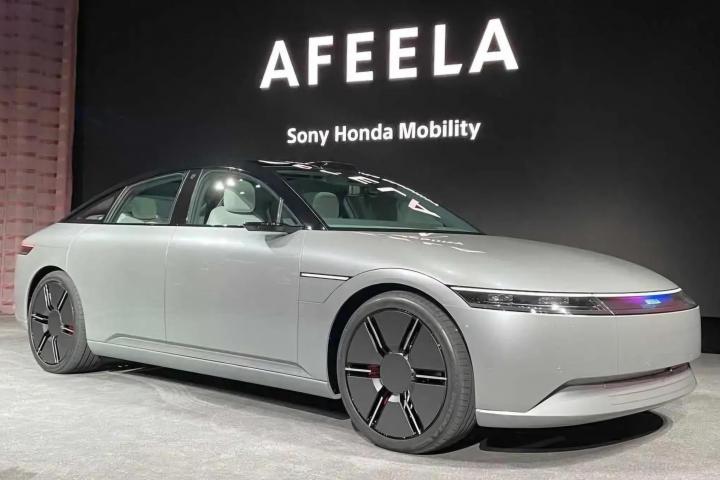News
Japanese car companies coming together to take on Chinese EV juggernaut
Toyota has joined hands with Mazda, Subaru and Suzuki and Honda recently announced a partnership with Nissan and its recently acquired sister company Mitsubishi may also join the alliance.
BHPian DRPSREDDY recently shared this with other enthusiasts:
Finally, the Japanese auto industry seems to get some sunshine and has woken up to recognize the Chinese EV onslaught.
The Chinese have been on a Juggernaut and have become a threat to the world automotive market. The Western world has been on the defence blocking their entry. Today even the western bigwigs are totally dependent on Chinese R&D and have been sourcing their platforms as a quick way to enter the market. Companies like Mercedes Benz, JLR, Ford, Stellantis, GM, etc are all dependent on Chinese parts and Platforms. In such a scenario, the Japanese, who vehemently opposed electrification have now realised the threat and are working with an urgency. The Japanese have now planned to regroup and get back into the race.
Sony and Honda formed an alliance in which they launched a new brand named AFEELA and showcased new EVs but they paused further updates. Now they have forged alliances with Japanese companies. Toyota has joined hands with Mazda, Subaru and Suzuki and Honda recently announced a partnership with Nissan and its recently acquired sister company Mitsubishi may also join the alliance.




Will the Japanese get back the glory or they have already ceded their territory to the Chinese? We'll have to wait for the game to unfold.
Here's what BHPian electric_eel had to say about the matter:
I honestly hope this is true and wish them luck. The writing was on the wall for quite some time and they were caught asleep on duty. Looking forward, they might want to invest heavily in large markets like India where they have many advantages.
- A market which has not yet seen a Chinese EV onslaught
- They are already well entrenched via their ICE business
- And more importantly, a huge market which is desperately looking for alternatives to the (semi) established players (Tata Mahindra).
Here's what BHPian anjan_c2007 had to say about the matter:
The Japanese have been leading in ICE technology for five decades now. The Oil Shock during winter of 1973, saw the onslaught of Japanese cars in Western markets where their homegrown car makers were caught napping. Apart from frugal fuel consumption, the Japanese excelled at picking up the Best from the West and perfecting such technology to gain the "reliability" tag, that many Western carmakers had been struggling to get.
Western carmakers led technology-wise for more than a century, and China's car industry emerged at the scene quite late in the day to compete with Chinese ICE cars in the international markets with the Western, Japanese and lately South Korean brands.
China leads the world with its rare earth element (REE) resources plus several other REE/trace element/ mineral/ore deposits. Their next best option was to develop EV technology to take on the world using their own natural resources, while the competition was engaging in R&D mainly for ICE technology with lesser efforts getting directed towards improvising EV technology.
But a long message shared below, that I came across on social media has logic, though some of the assertions may not be agreeable to.
"Heads should roll over the electric car fiasco*
Policymakers have wasted billions chasing a net zero pipe dream. It is time they were held accountable
Mercedes' electric cars may be slick but their sales figures make for uncomfortable reading.
Profits at the German auto giant Mercedes plunged on Friday as sales of its slick new range of electric vehicles (EVs) went into freefall. Porsche abandoned its sales targets for battery-powered cars amid waning demand from customers. Ford is losing nearly $50,000 (£39,000) on every EV it sells, while Tesla’s profits dropped 45pc. Meanwhile, battery manufacturers such as Germany’s Varta are getting wiped out.
Over the last few days, it has become clear that the EV industry is on the brink of collapse. Hundreds of billions of euros, dollars and pounds have been pumped into this industry by political leaders and the subsidy junkies that surround them – and it is surely time they were held to account for the vast quantities of taxpayer cash that has been wasted.
In the last few days alone, there has been a steady stream of bad news from auto manufacturers. Mercedes, the company founded by Gottlieb Daimler that pioneered petrol driven cars, is struggling to replicate that success in the battery version. Group net profits were down 21pc on Friday, mostly on falling sales of its new range of EVs. Earlier in the week, its great rival Porsche watered down plans for its electric models.
Across the Atlantic, Ford reported that profits were down by 35pc in the latest quarter amid losses in its EV unit. And Tesla slashed prices and offered generous financing deals to try and revive flagging demand.
It is even worse for component manufacturers. Shares in Germany’s Varta are down by 70pc over the last month amid reports that the company may have to be rescued from bankruptcy after making heavy losses on batteries for hybrid sports cars. This week, the Belgium chemicals group Umicore announced a €1.6bn (£1.4bn) hit, as manufacturers warned of waning EV demand, and it postponed plans for a battery recycling plant.
The list goes on and on. In reality, the EV balance sheet looks to be awash with red ink. It is not hard to work out why. Costs are too high, as companies such as Ford have discovered, with electric cars much more expensive to produce than their traditional petrol rivals, and with shortages of critical materials pushing prices higher all the time.
There is too much capacity in the industry, with companies over-investing in too many factories and distribution centres. Demand for the end product has started to crumble, with consumers increasingly nervous over what may become obsolete technology. Insurance and maintenance costs are proving far higher than expected for many, once the vehicles are actually on the road.
And all that was before the Chinese entered the market with a new range of slick, cheap vehicles. The word “bloodbath” is used too often in business journalism. But right now, it may be the only one appropriate to describe the state of the Western EV industry.
Surely it is time that political heads started to roll for the catastrophe that is now unfolding. Policymakers, under pressure from industrial and climate change lobby groups, picked this “winner” and spent eye-watering amounts of taxpayer money on it.
In 2019, France’s President Macron grandly announced a Franco-German plan to dominate battery production, with €700m invested by France and another €1bn in Germany. The EU proudly boasts that €80bn has been invested in the “EV value chain” as part of its Green New Deal, but when the books are finally opened it is unlikely they will be good.
The situation is even worse in the US. The Biden administration recently awarded nearly $2bn in grants to help restart or expand EV manufacturing and assembly sites across eight states, which feels like throwing good money after bad. It has offered tens of billions in subsidies of more than $7,000 per vehicle sold, and even more in building the infrastructure, including one $7.5bn scheme to install chargers that ended up with only seven actually built (which works out at more than $1bn each for what is basically just a plug).
Even in this country, where our political class was largely too incompetent to back any projects, money was poured into the ill-fated Britishvolt project, and it remains to be seen how much is finally given to India’s Tata for its new EV battery factory in Somerset.
Economists have long warned that net zero provides a golden opportunity for waste and rent-seeking. But some elites chose not to listen. We should start holding them accountable. Lobbyists argued for the subsidies, civil servants supported them, and finance ministers enthusiastically virtue signalled with other people’s money.
But too much investment creates overcapacity. Markets are better at deciding which technologies work than politicians, and if there is a genuine demand for a product then no one has to receive a grant to manufacture it, since the potential profits to be made will be incentive enough.
The carnage in the EV industry is only just getting started and already it has cost billions."
Going by this logic, if EVs dwindle in sales and population by the next decade, the ICE technology with better-enforced pollution norms could gain a temporary respite and thereafter a new push and traction until a more pragmatic, alternative green fuel technology reaches perfection for usage in both mass-produced and custom made automobiles. And with the revival or renaissance of ICE technology, Japan could outwit China and well emerge as the leader again.
Check out BHPian comments for more insights and information.









.jpg)







